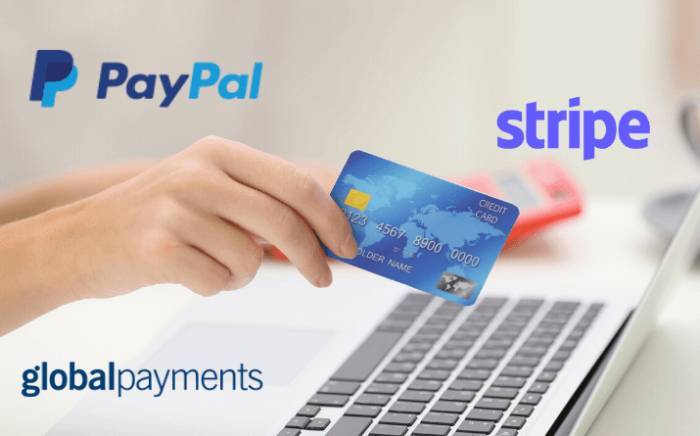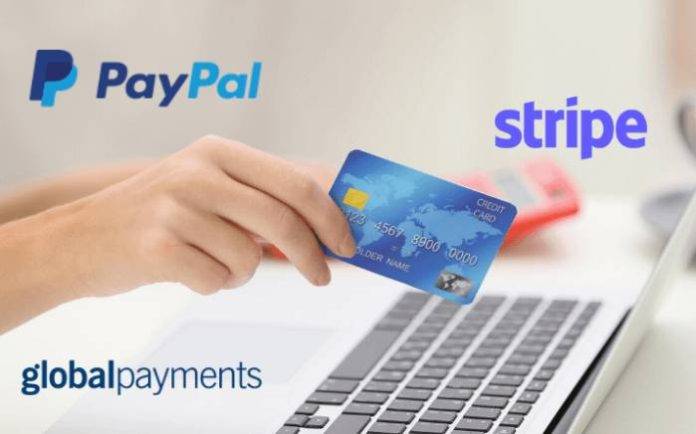Starting an e-commerce business is an exciting adventure filled with countless opportunities. One of the most crucial aspects to consider is how you’ll handle payments. Offering a variety of payment options isn’t just a nice to have; it’s essential to serve a wide audience and maximise your sales. Customers today expect convenience, security, and flexibility when it comes to paying for their purchases. By working with the right payment providers, you can meet these expectations and set your business up for long-term success.

PayPal
First on the list is PayPal, a household name in online payments. It’s one of the most recognised and trusted platforms in the world, with millions of active users. Integrating PayPal into your website allows customers to pay using their PayPal balance, linked bank accounts, or credit cards. This flexibility caters to different customer preferences. The trust factor associated with PayPal can significantly reduce cart abandonment rates. Customers feel more secure completing a purchase when they see PayPal as an option, knowing their financial information is protected. Setting up PayPal is straightforward and offers strong protection for buyers and sellers, giving you peace of mind as you conduct your business.
Stripe
Next up is Stripe, known for its flexibility and developer-friendly features. Stripe allows you to customise your payment process extensively, offering a seamless experience for your customers. It accepts over 135 currencies, making it ideal for businesses aiming for an international market. With transparent fees and no hidden charges, Stripe ensures you know exactly what you’re paying for each transaction. Its advanced security measures protect against fraud, ensuring all transactions are safe. For businesses that want to tailor their checkout experience and need a scalable solution, Stripe is an excellent choice.
Worldpay
For those operating in the UK, Worldpay is a leading payment processor that shouldn’t be overlooked. It supports online, in-store, and mobile transactions, providing a comprehensive solution for all your payment needs. Worldpay offers advanced security features, including fraud screening tools, to protect your business and customers. Its ability to accept payments from customers worldwide makes it a valuable addition to your payment options. Plus, with its strong reputation in the UK, customers may feel more comfortable using a familiar provider.
Klarna
Klarna is another payment provider making waves, especially among younger shoppers. It offers buy-now-pay-later options, allowing customers to pay in instalments or delay payment. This flexibility can encourage customers to make larger purchases or buy items they might otherwise hesitate to buy. Integrating Klarna into your website is relatively easy and doesn’t add extra costs for the retailer. By offering Klarna, you provide an extra level of convenience that can set you apart from competitors.
Apple and Google Pay
In today’s mobile-centric world, offering payment options like Apple Pay and Google Pay is becoming increasingly important. In the past twelve months, we’ve seen both mobile wallets become accepted, and more and more online casinos and casinos know how and where to extract money from customers. Where casinos lead, it often makes sense to follow – and the kind of new casino 2025 brings will be using Apple and Google Pay. These mobile wallets provide quick and secure transactions, with customers able to complete purchases with just a touch or glance. By supporting Apple Pay and Google Pay, you cater to tech-savvy customers who value speed and convenience. These payment methods use biometric authentication, adding an extra layer of security to transactions. Plus, they reduce the need for customers to enter their card details manually, streamlining the checkout process and reducing the chances of cart abandonment.
Apple Pay
Amazon Pay leverages the trust and familiarity of the Amazon brand. By allowing customers to use their Amazon account to make purchases on your site, you reduce friction in the checkout process. Customers don’t have to enter their payment details again, which can speed up transactions and enhance the shopping experience. Amazon Pay is backed by Amazon’s strict security protocols, ensuring that all transactions are secure. This can be particularly appealing to customers who regularly shop on Amazon and are accustomed to its payment system.
Opayo (formerly Sage Pay)
Sage Pay, now known as Opayo, offers reliable payment services and excellent customer support. It provides Level 1 PCI DSS compliance, ensuring all customer data is protected to the highest standards. With flexible pricing options, Sage Pay is suitable for businesses of all sizes. Its 24/7 customer support means you can get assistance whenever needed, helping you resolve any issues quickly. For businesses that prioritise security and support, Sage Pay is a solid option.
Adyen
Adyen is a unified commerce platform that processes payments for some of the world’s leading companies but is also suitable for growing businesses. It accepts payments from all over the world and supports online, mobile, and point-of-sale transactions. Adyen provides detailed insights into your payment processes, helping you optimise and improve your payment strategy over time. If you’re looking for a scalable solution that can grow with your business, Adyen is worth considering.
When choosing the right payment providers, it’s important to understand your audience. Research which payment methods are preferred by your target market. For example, younger customers might prefer mobile wallets and buy-now-pay-later options, while others might stick to traditional credit cards or PayPal. Consider the costs associated with each provider, including transaction fees, and how they might affect your profit margins. Some providers charge flat fees, while others have variable rates based on the transaction amount. Ease of integration is another key factor. You’ll want payment providers that work seamlessly with your e-commerce platform so you don’t run into technical issues that could disrupt your sales.
Offering a variety of payment options is essential for any e-commerce business aiming to serve a wide audience. By working with trusted payment providers like PayPal, Stripe, Worldpay, Klarna, Apple Pay, Google Pay, Amazon Pay, Sage Pay, and Adyen, you can enhance the customer experience, reduce cart abandonment, and boost your sales. Remember, the goal is to make the purchasing process as easy and secure as possible for your customers. By investing time in choosing the right payment providers now, you’re setting your business up for success in the competitive online marketplace. Customers appreciate flexibility and security, and by meeting these needs, you’re more likely to earn their loyalty and positive word-of-mouth, which are invaluable assets for any growing business.








































